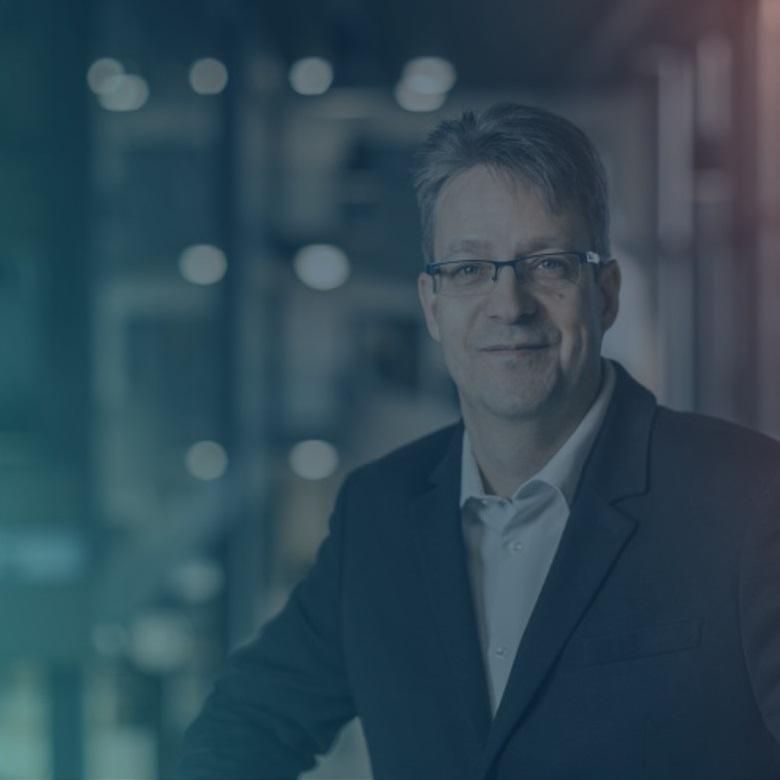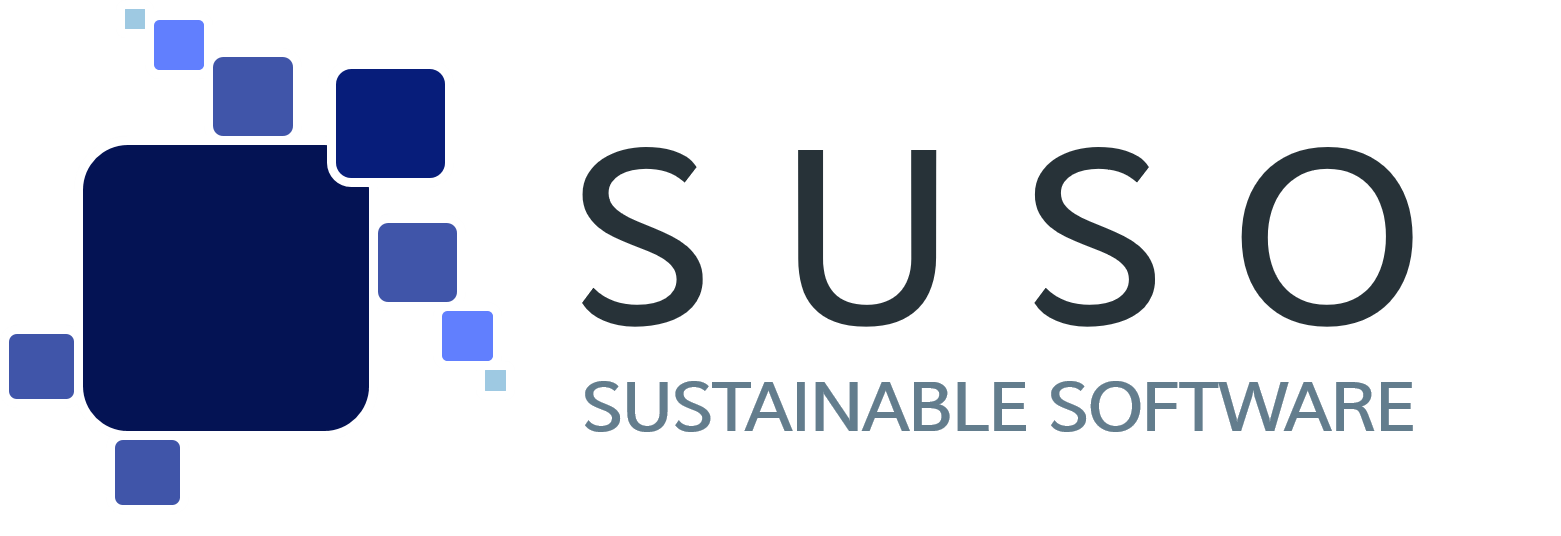SUSO – SUSTAINABLE SOFTWARE
Sustainability is the capacity to endure. Our platform supports you develop sustainable software so that society, the environment and your business benefit.
Sustainability for your software business
Sustainable software – why?
Bridging Academic Software Sustainability Design with Corporate Business Planning

Dominic Lammert (2024): Bridging Academic Software Sustainability Design with Corporate Business Planning, Acta Universitatis Lappeenrantaensis 1126, Lappeenranta-Lahti University of Technology LUT (Finland). ISBN 978-952-412-053-1.
Corporate Sustainability Reporting Directive (CSRD)
From January 2026, many SMEs in the EU will be obliged to prepare CSRD sustainability reports for the year 2025. All companies that fulfil two of the following three criteria are subject to the CSRD reporting obligation:
2024 is the year to prepare for the challenge of sustainability compliance so that companies are ready to report in 2025. However, compliance can also generate competitive advantages by modelling the company with a systemic approach and identifying strategic leverage points.
“Every line of code represents an ethical and moral decision.”
– Grady Booch, Computer Scientist
Use our tools for software sustainability
Our three tools can help software companies and developers to gain the knowledge, the skills, and the funding they need to create sustainable software products and services that meet social, environmental, and economic needs. By taking advantage of these tools, your team can position your organization as a leader in sustainable software development, and help create a better future for all.
1. eLearning Course with Certification: A Corporate Guide for Sustainable Software in Theory and Practice
Our eLearning course is aimed at both beginners and advanced participants who want to expand their knowledge and methods in the area of sustainability in software development. At the end, every employee receives a personal certificate after successfully completing all modules.

2. Interactive Version of the Sustainability Awareness Framework (SusAF)
This tool visualizes the impacts of software on five correlating dimensions: social, individual, environmental, economic, and technical. It also shows their time scales at three different levels: immediate impacts, enabling impacts, and structural impacts. Finally, the result is a radar chart that shows up the impacts of your software.

3. Smart Overview about Sustainability Fundings for Software Companies
Did you know that there are numerous funding opportunities for small, medium-sized, and large software companies that can help you financially and organizationally with the implementation of sustainability? Here, you will find a tabular and cartographic overview that will help you find the right funding for you.

Cooperations between research and industry
On this page you will find research institutions working in the field of sustainability and software development. Here you have the opportunity to find cooperation partners. Be it for joint projects, workshops, internships or theses. Are you already listed here?
Read our blog to learn strategies and best practices for sustainable software
At our blog, we’re dedicated to promoting software sustainability. Here, we provide software companies and developers with valuable insights and resources to help them create sustainable software products and services that meet social, environmental, and economic needs. Explore our tips, best practices, and strategies for creating software that meets the needs of your customers.
Our team bridges the gap between sustainable software theory and practice
SUSO is a project that emerged from the dissertation “Bridging Academic Software Sustainability Design with Industrial Business Planning”. Accordingly, our team brings together researchers who connect academic theory with industrial practice.

Dr. Dominic Lammert
Dr. Dominic Lammert studied Ethnology and Literature in Vienna and Freiburg (B.A.), then Media Informatics in Bielefeld and Aix-en-Provence (M.Sc.). Afterwards, he worked for three years in the IT/digital department of the publishing house Verlag Herder and another year in startups. Today, he works at Furtwangen University as an academic staff in Socioinformatics and is project coordinator within KISS (Künstliche Intelligenz Services Systeme) which is a cooperational project with the State University of Music Trossingen. He accomplished his PhD in Software Engineering in cooperation with LUT University (Finland) on the implementation of sustainability in software industry, with SUSO emerging as a side project.
dominic.lammert(at)hs-furtwangen.de

Prof. Dr. Stefanie Betz
Prof. Dr. Stefanie Betz studied Information Economics at the Karlsruhe Institute of Technology (KIT), also received her Ph.D. there, and spent her PostDoc in Sweden at the Software Engineering Research Lab (SERL at BTH). Subsequently, she was junior group leader of the “sustainable software systems engineering” group at KIT. Today, she is a Professor of Socioinformatics at the Faculty of Computer Science at Furtwangen University (HFU). In her research, she wants to find out how individual, social and ecological impacts of software systems can be considered and improved already at the design stage.
stefanie.betz(at)hs-furtwangen.de

Prof. Dr. Jari Porras
Jari Porras D.Sc (Tech) is Professor of Software Engineering (especially Distributed Systems) at the Lappeenranta-Lahti University of Technology LUT. Prof. Porras received the DSc. (Tech.) degree from the Lappeenranta University of Technology, Finland in 1998 about modeling and simulation of communication networks in distributed computing environment. He has supervised approx. 500 Master’s Thesis works and 22 Dissertations as well as acted as external evaluator for 21 doctoral thesis works since the start of his professorship. He has conducted research on parallel and distributed computing, wireless and mobile systems and services as well as sustainable ICT. In last years he has focused his research on human and sustainability aspects of software engineering. He is actively working in international networks and organizations.
jari.porras(at)lut.fi

Dr. Shola Oyedeji
Shola Oyedeji is a postdoctoral researcher at LUT University Finland with research on software sustainability by design focused on integrating the human, societal, environmental, technical and economic concerns into software systems design and measurement to support sustainability. He is also a postdoctoral researcher fellow at University L’Aquila, Italy with research on Identifying and prioritizing sustainability concerns of companies to software design.
shola.oyedeji(at)lut.fi
Our latest (peer-reviewed) publications about sustainable software:






